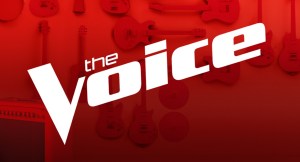Facebook found itself in some hot water on Thursday when some users noted violent and sexually graphic suggestions were autofilling their search bar when they attempted to look something up.
Based on screen shots, the suggestions included searches for “Florida School Shooting,” pornographic images, child pornography and child abuse, just to name a few.
Videos by PopCulture.com
Since Facebook blocks sexually graphic material, no evidence of users getting results of these suggested images was found according to The Wrap.
Facebook removed the suggestions and issued a public apology in a statement.
“We’re very sorry this happened,” the statement read. “As soon as we became aware of these offensive predictions we removed them,” said the social network in a statement to TheWrap.
“Facebook search predictions are representative of what people may be searching for on Facebook and are not necessarily reflective of actual content on the platform. We do not allow sexually explicit imagery, and we are committed to keeping such content off of our site. We are looking into why these search predictions appeared, and going forward, we’re working to improve the quality of search predictions.”
Facebook and its CEO Mark Zuckerberg made multiple statements in January and February promising that changes were coming to the social media network, specifically in how the News Feed will now prioritize posts from friends and family over news stories from media outlets and posts from specific pages.
“We built Facebook to help people stay connected and bring us closer together with the people that matter to us,” Zuckerberg wrote back on Jan. 31. “That’s why we’ve always put friends and family at the core of the experience. Research shows that strengthening our relationships improves our well-being and happiness. But recently we’ve gotten feedback from our community that public content — posts from businesses, brands and media — is crowding out the personal moments that lead us to connect more with each other.”
The company also announced in February that it was working on a potential downvote feature on certain posts, though it clarified it would not be the same as a “dislike” button.
“We are not testing a dislike button. We are exploring a feature for people to give us feedback about comments on public page posts. This is running for a small set of people in the U.S. only.”
Zuckerberg said in a Q&A he was against the concept of a Dislike Button to go along with the usual Like, Comment and Share features.
“We didn’t want to just build a Dislike button because we don’t want to turn Facebook into a forum where people are voting up or down on people’s posts. That doesn’t seem like the kind of community we want to create,” he said.
Most Viewed
-

“Zone of Death” – As Kayce tries to embrace his new beginning, a Marshals op to stop a domestic terror attack lands him in a valley of buried Dutton family skeletons. While confronting his past, he must also learn to ingratiate himself with his new Marshals teammates, on MARSHALS, Sunday, March 8 (8:00-9:00 PM, ET/PT). Pictured: Luke Grimes as Kayce Dutton. Photo: Sonja Flemming/CBS ©2025 CBS Broadcasting, Inc. All Rights Reserved.







